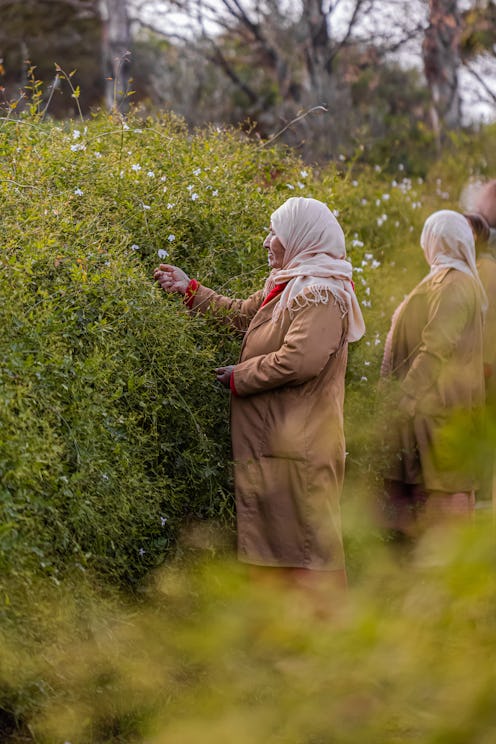(Earth Month)
YSL Beauty’s New Environmental Program Commits To Protecting Biodiversity
Inside the “Rewild Our Earth” initiative.

The earth and its precarious future (and, by extension, humanity’s collective future) is one of the most pressing issues of the day but it can also feel the most hopeless — and that’s why large-scale efforts from legacy brands and companies are so important. YSL Beauty’s “Rewild Our Earth” campaign, a just-announced initiative aimed at increasing sustainability and conserving the planet’s biodiversity, is a prime example. By partnering with nonprofit Re:wild, the legacy beauty brand is affecting real, quantifiable change — starting with its own practices. “Rewild Our Earth” aims to restore and safeguard more than 100,000 hectares of land (that’s 10 times the size of Paris, for scale), with protective priority going to the brand’s ingredient-harvesting regions, including Haiti, Indonesia, Madagascar, and Morocco. Each of those regions gets special attention and tailored environmental assistance — in Morocco, for example, the brand is planting a near half-million trees while the Haiti-specific focus is on restoring primary forests.
“The beauty industry has seen a marked shift towards eco-conscious and eco-conceived brands in recent years, and our consumers are driving this behavior change — not only through their purchasing habits, but also through a demand for transparency at the brand level to make serious commitments related to climate change,” says Caroline Nègre, YSL Beauty’s International Sustainability & Scientific Director. “The wild is in decline, and brands can no longer ignore the impact they have on natural resources and nature itself.”
YSL Beauty certainly isn’t ignoring its impact. Within this new program, YSL is making it a top focus to restore the natural areas from which the brand sources its product ingredients in particular. “Rewild Our Earth” aims to restore and safeguard more than 100,000 hectares of land (that’s 10 times the size of Paris, for scale), with protective priority going to the brand’s ingredient-harvesting regions, including Haiti, Indonesia, Madagascar, and Morocco, where the brand is planting a near half-million trees.
“Rewilding is an innovative approach to conservation based on a progressive effort to enable natural processes, repair damaged ecosystems, and restore degraded landscapes,” Nègre explains — in other words, she says, it’s allowing nature to take care of itself as it would without human interference. Conservation has long been crucial to YSL, both to the fashion house and the man himself. Yves Saint Laurent, Nègre tells TZR, was a notable nature-lover who made a reverence for the wild a critical strand of the brand’s DNA. In fact, that reputation for respect was part of why Re:wild was keen to partner up in the first place.
“They are an iconic brand that has gained trust globally,” says Dr. Penny Langhammer, Ph.D., Re:wild’s Executive Vice President. “They want to use this platform to help their consumers understand that we are in a climate emergency and have less than a decade to fix it.” Langhammer explains that YSL Beauty has based its approach on the UN-approved Stockholm Resilience Center’s concept of “Planetary Boundaries”, or the nine categorical parameters that, if breached, would spell out global catastrophe. They include biodiversity (that’s “Rewild Our Earth’s” main focus), freshwater use, stratospheric ozone depletion, and ocean acidification. “From sourcing and formulation to packaging, manufacturing, transport, point of sale, and end-of-life use, we at YSL Beauty are committed to drastically reducing its environmental footprint,” Nègre explains.
Perhaps as important is YSL’s unwavering commitment to true transparency. A just-launched platform called “Change The Rules, Change The Future” is home to the brand’s sustainability reports that put the spotlight on every facet of the production process and track the progress toward laid-out goals like 70% bio-based ingredients by 2023 and 100% eco-designed and recyclable plastics by 2030. “As a brand whose business has both a direct and indirect impact on the environment,” Nègre says, “it is our duty to not only put words into action, but share this progress with the public.”
Learn more about Re:wild and the YSL partnership at @rewild and rewild.org